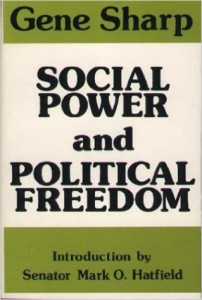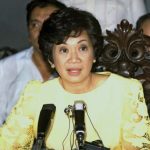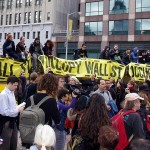Extrait de l’ouvrage: Social Power and Political Freedom; 83 p.
Pour consulter l’ouvrage complet, veuillez cliquer sur Social Power and Political Freedom
 One of the most urgent general problems in politics today is how to control the actions of modern governments. Their uncontrolled power threatens us in various ways — most blatantly in the forms of modern tyranny and war. The traditional means of controlling rulers — constitutional limitations, elections, self-restraint in the rulers themselves, and violent revolution — have been demonstrated to have significant limitations and disadvantages, regardless of their other contributions. In extreme situations in which control is most needed, we can no longer rely upon those traditional means as our only options. If we are not to become helpless political automatons, or to be annihilated, we must find and implement effective means of control over the power of rulers.
One of the most urgent general problems in politics today is how to control the actions of modern governments. Their uncontrolled power threatens us in various ways — most blatantly in the forms of modern tyranny and war. The traditional means of controlling rulers — constitutional limitations, elections, self-restraint in the rulers themselves, and violent revolution — have been demonstrated to have significant limitations and disadvantages, regardless of their other contributions. In extreme situations in which control is most needed, we can no longer rely upon those traditional means as our only options. If we are not to become helpless political automatons, or to be annihilated, we must find and implement effective means of control over the power of rulers.
If we are to discover, develop, and implement such means of control we must think about this problem. To do this, we need to go back to a much more basic level of discussion of political power than is usual these days in discussions of the problems of war, tyranny, and oppression. We need to locate and consider the various elements of the problem of uncontrolled political power and examine their interrelationships. In doing this we must be careful not to accept unconsciously the commonly held views about political power.
These views will impose limits on our thinking which may prevent us from successfully developing effective means of control. Instead, as we seek to understand and examine the social and political realities related to political power, we need consciously to try to go beyond the conceptual boundaries imposed by automatic acceptance of traditional assumptions. We need to explore whether other means of controlling rulers may exist or be developed in addition to the means of control relied upon in the past.
Before we can even begin to think about ways to control political power in extreme situations, we must look at political power itself. What is it, and what is its nature? These questions are basic to considerations of the means which can be used to control political power when its wielders do not wish to be controlled. Different views of political power and its nature will lead to corresponding perceptions of the options which may be available to those who wish to apply controls.
It is often assumed that the power of a « ruler » (including, of course, not only chief executives but also ruling groups and all bodies in command of the State structure) is rather like a granite mountain: solid, monolithic, long-lasting, or virtually permanent. From that perspective, such power is in extremities subject only to certain possible means of control. One might exercise some control by changing the « ownership » or « management » of the State structure. This could be done legally (as through elections) or illegally (as through coup d’État). Both ways would usually leave the structure and available power to the « owner » or « manager » virtually intact. Or, one might threaten or implement a direct explosive attack of great magnitude (as a violent revolution or an international war) intended to destroy at least part of the mighty structure. It has been widely assumed that against a ruler unwilling to accept limits or to abdicate voluntarily only such destructive means are capable of weakening or abolishing the power of the regime.


